Did you know that, on average, a Dutch person eats about 110 grams of meat a day? This week, March 9th - 15th, marks the third edition of the National Meatless Week in The Netherlands. A special campaign which should be celebrated! That’s why we like to join in and talk about the benefits of living without meat consumption to encourage a conscious lifestyle.
It’s a week to rethink eating patterns and to reshape thoughts on vegan and vegetarian meals. And this is for everyone! Not just the vegans out there, but also ‘flexitarian's’ who think consciously about their consumption and actively choose to eat less meat to save the environment and contribute to animal welfare. By not eating meat for only one week, we save about 770 grams of meat per person!
Why should you cut out meat?
Water waste
The founders of this national week, Week Zonder Vlees, researched the effects of not eating meat for a week, and the results are incredible. Turns out that you save about 130 liters of water by skipping meat for one week. This water would otherwise be used for animal agriculture.
Extinction
Did you know that one and a half acres of land can produce over 16.000 kilos of plant-based food? The same plot of land can only produce 170 kilos of meat. So why is livestock still covering 45% of the earth's land, we wonder. Especially considering the fact that animal agriculture is one of the most polluting industries on the globe. Animal agriculture is actually the leading cause of species extinction, ocean dead zones, water pollution, deforestation, and habitat destruction. Furthermore, livestock is responsible for 80% of global deforestation.
Greenhouse gas emissions
Did you know that animal products create more greenhouse gas emissions than the entire transportation sector? We can’t deny that we’re facing a climate crisis and that it’s mainly caused by animal agriculture as this sector produces methane and nitrous oxide emissions - which are 86 and 310 times more powerful than CO2, reported The Guardian.
Health benefits
Medical News Today reported earlier this year that switching to a vegetarian diet or vegan diet has many health benefits. A diet filled with more vegetables, fruits and nuts over meat lower blood pressure, reduced diabetes risk, glowing skin, lower risk for cardiac events, and lower cholesterol levels.
Animal welfare.
Back in the 14th century, over 76% of the population worked in agriculture. Today, only 26% of our workers are farmers, but over the 50 years alone, meat production has quadrupled - and the world produces about 320 million tonnes of meat a year. This has the following impact on animal’s wellbeing, as reported by PETA:
Animals on factory farms are jammed in small spaces where they often can’t turn around or lie down.
Antibiotics are used to make them grow faster under unsanitary conditions. This also means that humans who consume them, consume antibiotics without knowing about it.
Genetic manipulation is used so that animals lay bigger eggs or produce more milk than their bodies can handle before they grow big enough to be slaughtered.
Violence against animals. Earlier this year, undercover footage of a slaughterhouse in The Netherlands got released. Showing pigs for slaughter being chased and hit.
Find out more about agriculture as an environmental threat in our short animation below.
The Conscious Club went vegan
When we started out in 2016, we were one of the first fully vegetarian venues in Amsterdam. Recently, we realized that we could do even more to promote a healthy and conscious lifestyle, which is the reason why we transferred into a circular and vegan space. This year, we strive to be the first fully homegrown and vegan venue - which is why we cut out dairy and started growing our own ingredients by using the compost of our own food waste.
Perhaps, a fully circular and vegan lifestyle is not (yet) manageable for everyone - but taking smalls steps like cutting out meat from your diet already makes such a difference to our planet. We should start worrying about our own consumption - something each and every human should take their own responsibility in - and stop blindly blaming the fossil fuel industry for all the environmental problems we face today. Let us all take a good look at our own living pattern first, and see how we can contribute to a healthier planet.





Soil. It’s everywhere, yet we rarely take it into consideration. Even though it plays such an important role in our biodiversity system and directly affects the quality of the fruits and veggies we put on the table. End-in-end, it has a huge effect on our health.